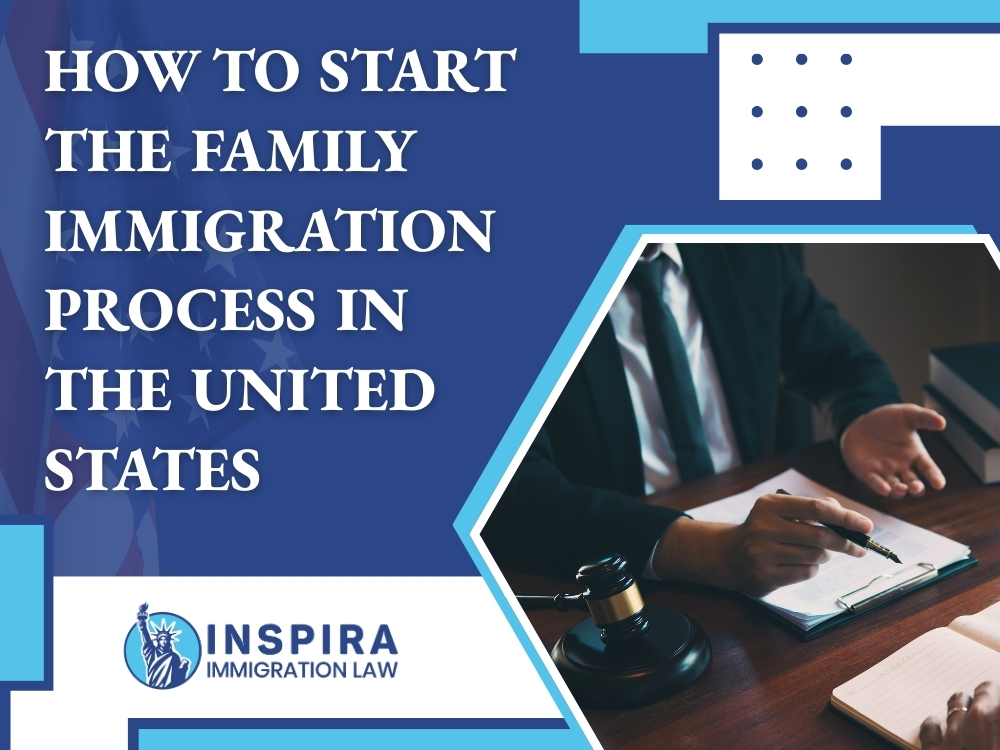U.S. immigration laws are complicated, but they offer many ways for people to apply for citizenship or lawful permanent resident status.
Family-based immigration is a way to bring your loved ones to the United States as U.S. citizens or lawful permanent residents.
However, the process is more complicated than it sounds. An experienced immigration attorney can help you through the process of petitioning your qualifying foreign relatives.
Whether it’s a green card, waiver, or humanitarian relief, we’ll review your case and explain what’s possible.
U.S. immigration law allows some noncitizens, who are family members of citizens and lawful permanent residents, to become lawful residents (get a Green Card).
Usually, U.S. family-based immigration requires the participation of at least two family members; a beneficiary and a petitioner.
The petitioner must be a lawful permanent resident or a United States citizen who wishes to sponsor a foreign family member to obtain a green card. The beneficiary is a foreign family member seeking a Green Card.
The legal conditions for this differ depending on your United States citizenship status.

Family immigration is a complex process, and the consequences of making a mistake can be costly. An experienced family immigration attorney can help you avoid delays, ensure all forms are correctly filed, and guide you through every step of the process.
Having the right legal support means greater peace of mind and a higher chance of a successful outcome.

The family immigration process is confusing and complicated. A family immigration attorney can help you understand the process and ensure that you complete all the necessary steps.
The family immigration interview is an important part of the process. An experienced family immigration attorney can help you prepare for your interview and ensure you are ready to answer any questions the interviewer may have.
There are two family-based immigrant categories: immediate relatives or those under family preference categories.
Immediate relatives of U.S. citizens can obtain permanent residency based on their family relationships.
Specific eligibility criteria must be met.
Family preference visas are intended for certain noncitizens, who are family members of U.S citizens and lawful permanent residents, to become permanent residents (get a Green Card) based on specific family relationships.
The family preferences are the following:
Each year only a limited amount of immigrant visas are issued to people in this category.
According to the visions of U.S. immigration law, United States citizens can file visa petitions for their parents, spouses, children, or siblings.
However, permanent residents in the U.S. can only file immigrant visa petitions for their spouses or unmarried sons and daughters. For more information, consult a family immigration lawyer who will explain the laws around the family-based immigration process.
The first step in the relative visa application process is submitting Form I-130 with supporting documents. Your relative does not get any benefit or status based on the filing or approval of this petition.
Sponsoring a family member requires you to meet the requirements for supporting a potential immigrant. You must:

If you have questions about the immigration process, immigration visas, or gaining U.S citizenship or permanent residency for your family, our immigration lawyers can assist you.
We can help you with your visa application no matter which state you live in because visas are governed by federal law rather than state law.
Contact a family immigration attorney at the Law Offices of Leonelba Martinez today to start with your family-based immigration petition.
